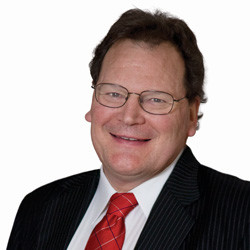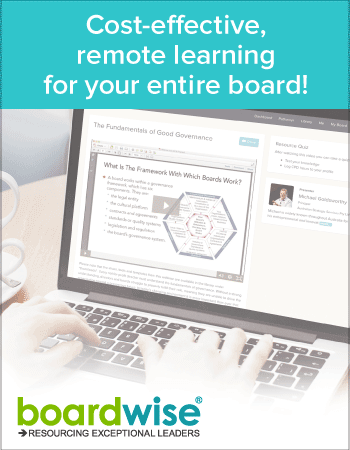leadership
Transferring and Securing Wisdom and Knowledge: A Mission Critical Activity For All Leaders
Published: December 6, 2024
Read Time: 8 minutes

An unquantifiable amount of individually accumulated knowledge and wisdom will be lost if the current long term directors, chief executive officers and executives of not-for-profits, no matter what industry or sector they operate within, fail to transfer and secure this most precious resource.
Demographic research, statistics and observation tell us that the generational scales have tipped, Generation X (1965-1980) and millennials (1981-1996) are on the rise, whilst baby boomers (1946-1964) are past the tipping point and are on the decline; a transition from one generation to the next.
Within this transition are those individual thought leaders who either did or still do govern, lead or manage the many and varied not-for-profits, be they community businesses, social enterprises for purpose organisations or similar such entities that operate within the various industries and sectors of the Australian economy and throughout society.
In particular this transition is occurring in all human services industries and sectors, such as disability and mental health, education and training, children’s early learning, community and welfare, homelessness and housing, as well as in aged care, acute care, primary health care or allied health care.
Over the course of an individual’s career, emerging thought leaders gain information whilst they develop skills and accumulate knowledge, eventually building their wisdom. Recognition of this career journey – within the context of the generational transition underway – brings into focus two incredibly powerful dynamics that are and will continue to create significant strategic, organisational and operational impacts and implications for all not-for-profit organisations.
The first dynamic is knowledge and wisdom loss.
With the exiting or retirement of baby boomers – especially those who are thought leaders– comes the incalculable loss of intellectual capital at either governance, organisational or operational levels.
An unquantifiable amount of individually accumulated knowledge and wisdom gained over a 35-to-50-year career is potentially lost if opportunities for transferring and securing accumulated knowledge and wisdom are not created.
The second dynamic is skills and knowledge development.
With the rise of Generation X and millennials comes the opportunity for the expansion of intellectual capital at either governance, organisational or operational levels. Whilst these individuals have accumulated their individual skills and knowledge over a 10-to-20 year career to date, they could substantially benefit from the transfer of knowledge and wisdom from departing baby boomer thought leaders.
Given this actual or impeding inter-generational gap in knowledge and wisdom a critical strategic question must be asked: what are your organisation’s and your industry’s or sector’s strategies that will facilitate the transfer and securing of these highly valuable learnings, key understandings and deep insights, hard won and embedded over many decades by current and past long term thought leaders?
In asking this question it is important to understand that successful and sustainable societies, communities and families, as well as organisations and their services or products are typically built on an exchange of past, present and emerging information, skills, knowledge and wisdom, provided by their respective thought leaders.
To this end there is no greater example of this approach than the past and present Elders of Australia’s First Nations Peoples – be they an Aboriginal or Torres Strait Islander – whose song lines, dreamtime stories, message sticks, corroborees, ceremonies, rock art and similar cultural events have ensured the intergenerational exchange of knowledge and wisdom over the millenniums to today.
Aged Care: A Case Study
Before considering a number of practical “knowledge and wisdom exchange strategies” it is useful to reflect upon a case study.
The Australian Government legislated and established aged care and over time aged care thought leaders built significant organisational and industry / sector knowledge and wisdom; much of which has in the past or is currently, being lost, as long term thought leaders exit to other employment activities, adventures or retire.
In 1901, the year of Australia’s Federation, only a very few people reached retirement age. If they required assistance then families, communities, Church and Charitable and similar community organisations cared for them and/or provided accommodation.
In due course under the Aged Persons Act 1954 retirement villages were funded and then nursing homes, known as “Class C Hospitals” were funded, 2 shillings - $2 today, per resident per day. These were mainly developed and operated by private providers.
From the early 1970s driven by both an ageing population and increasing hospital bed blockage, the Commonwealth government partnered with State governments to incrementally develop a national approach to the establishment of aged care organisations and the development and delivery of residential care and then home care services.
This approach was encouraged and enacted initially via both dollar for dollar contracts and the provision of deficit funding for communities and Local and State governments, enabling them to establish nursing homes - high care, and hostels - low care; with about 27 percent of providers being Not For Profits, 19 percent being government and 54 percent private in 1972.
In the 1980s and 90s as residential aged care and home care organisations developed and grew, the industry/sector evolved, driven by what are now regarded as the long term thought leaders, be they directors, chief executive officers, advisors or consultants of aged care.
Knowledge and Wisdom Exchange Strategies
Throughout the various industries and sectors that not-for-profits operate in there are a small number of organisations which have substantially enacted the transfer of knowledge and wisdom of their past and current thought leaders, however the majority of organisations have done little more than maintain their official documents and historical records.
From a practical perspective, if the true value and benefit of these individual thought leaders’ knowledge and wisdom is to be captured, secured and utilised by the boards and chief executive officers of today and tomorrow they may wish to consider a few knowledge and wisdom exchange strategies.
1. Establish A Hall of Fame
Establish and operate your industry’s, sector’s or organisation’s Hall of Fame, then against robust selection criteria, identify, nominate and via citation induct outstanding industrysector or organisational thought leaders.
By engaging these wise individuals in significant events, strategic discussions and major projects, boards and chief executive officers can not only gain sage advice and major insights, but also bring about the public acknowledgment and recognition of these individuals’ ongoing or past achievements and contributions.
2. Create A Leadership Council
Either via your industry, sector or organisation, establish and operate a Leadership Council that would not only bring together your Hall of Fame inductees but other strategic leaders who are planning to exit, are transitioning from employment or have retired.
The aim of this approach would be to resource and support both inductees and other strategic leaders, enabling them to stay connected to colleagues, determine and organise their own events and projects and advance and promote their passion for your industry, sector or organisation.
3. Beyond Life Membership
Hall of Fame inductees can be utilised in a variety of creative ways, such as moving well beyond the traditional and outdated approach of Life Members, who are typically just rolled out at AGMs, mentioned in Annual Reports or named on Honour Boards, but are rarely fully engaged for their specialist knowledge and wisdom.
Be mindful that a Hall of Fame and its inductees are definitely not the same as an organisation’s Annual Awards and award recipients.
4. Mentor Emerging or Current Leaders
When the development and/or implementation of specific governance, leadership or management strategies and projects arises consider the involvement of current or past thought leaders.
For example during strategic review and planning workshops or major projects or seek their wise council via individual or group governance, leadership or management mentoring sessions in order to draw upon their extensive knowledge and deep wisdom.
5. Transferred, Secured Knowledge and Wisdom
Document and embed current and past thought leaders’ considered observations and reflections, definitive understandings and insights, via webinars, annual organisational conferences, industry/sector reference groups and panels, keynote speaker events and newsletters.
Mindful that with such an array of digital technologies, apps and AI available today, there is no end to the variety of ways knowledge and wisdom can be transferred, secured and utilised.
6. Accurate and Secure Archives
If you haven’t already, review your historical governance and organisational records policy and practices, in order to take greater account of your organisation’s heritage and history, along with your past and current thought leaders’ knowledge and wisdom.
In summary, I urge all boards, chief executives and executives to seriously consider these strategies. Even though they are heavily focused on addressing their respective governance, organisational or operational roles and responsibilities, it is nevertheless important to take the time to reflect upon who are the carriers of your organisation’s information and skills.
And more importantly to know who are the past or existing keepers of your organisation’s knowledge and wisdom and ensure it has it been transferred and secured.
This article was first published in the 2024 Better Boards Conference Magazine.
Further Resources
Finding Collective Leadership Success
Integrated Leadership – Solving complex problems with the power of many
Share this Article
Recommended Reading
Recommended Viewing
Author
-
Principal Consultant
Australian Strategic Services
- About
-
As Chairman of Better Boards and Managing Director of Australian Strategic Services, Michael Goldsworthy’s passion for community businesses (NFPs) cannot be underestimated. For thirty years he has advanced their cause, strengthened their governance and delivered pragmatic solutions; ensuring community businesses remain a vital part of Australian communities and the economy.
Found this article useful or informative?
Join 5,000+ not-for-profit & for-purpose directors receiving the latest insights on governance and leadership.
Receive a free e-book on improving your board decisions when you subscribe.
Unsubscribe anytime. We care about your privacy - read our Privacy Policy .










